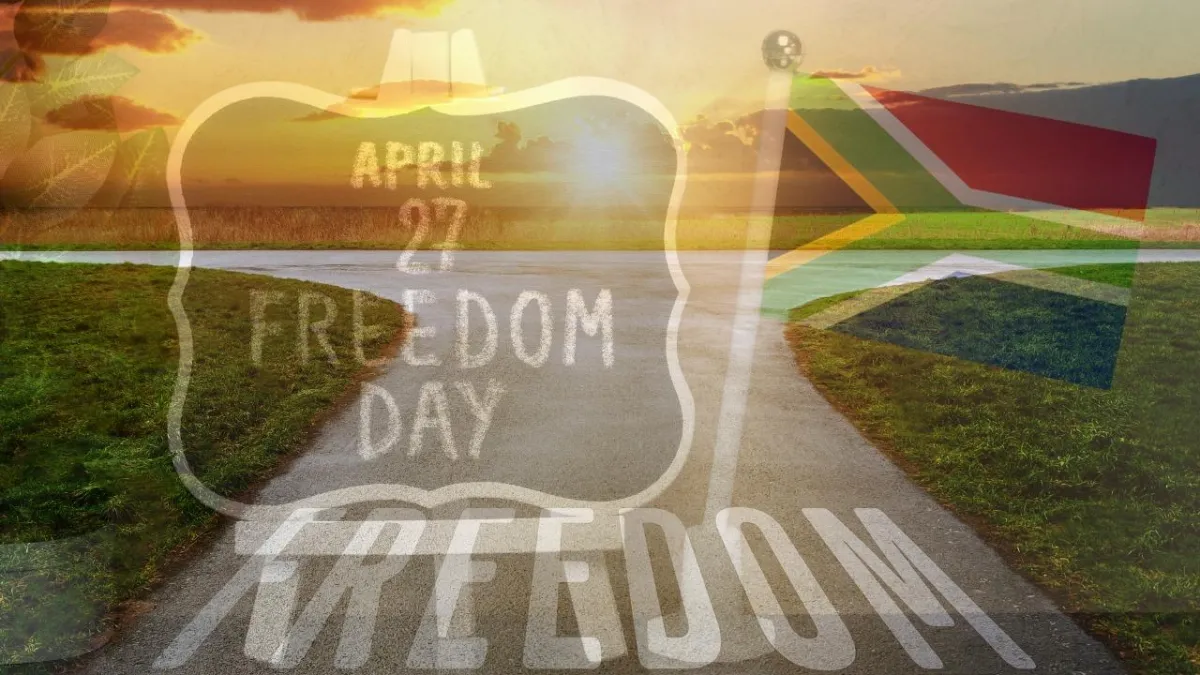
Freedom Day
Freedom is a word filled with power. It stirs our feelings, fuels movements, overturns governments, and reshapes how we live. Here in South Africa, Freedom Day is a reminder of the struggles and victories that gave us the right to make our own choices, to have our dignity respected, and to have our voices heard. It also makes me think about how the best leaders act, which, in many ways, reflects this very idea of freedom.
True leadership isn't about telling people what to do all the time. Instead, it's about creating a space where people can grow, think creatively, and act responsibly. This happens not because they have to, but because they want to. It's about inspiring them.
For many years, I saw a lot of leadership in the business world that was all about control. There were strict rules, leaders watched over every little thing, and people had to ask permission for almost everything. This kind of environment stopped new ideas from developing. Leaders often confused being obedient with being truly dedicated. They thought that if they controlled people tightly, they would get good results. And, in the short run, this often worked. But, over time, people stopped being creative, new ideas slowed down, and trust started to disappear.
Real freedom in leadership doesn't mean there's no structure at all. What it does mean is that there's a clear purpose. It means having a clear goal, values that everyone shares, and good systems. But it also means giving your people the freedom to use their own special talents and ideas to reach that goal.
From my experience coaching leaders, I've learned that the most effective ones set up strong frameworks, but then give their teams the space to lead within those frameworks. They don't try to control every single action. They make sure everyone understands the overall vision and what the results should look like. Then, they step back enough to let their teams figure out the best way to get there.
When you lead people with this kind of freedom, you don't have to constantly tell them what to do. They naturally take ownership of their work.
Freedom in leadership isn't about giving up responsibility. It's about taking on a higher level of responsibility. It means trusting that your team can think, make decisions, and lead. It requires you to invest in helping them develop good judgment, not just watching what they do.
This change can be difficult. Leaders have to face their own fears: What if someone makes a mistake? What if they go in a different direction than I would have? What if I lose control? It's true that mistakes will happen. People will take different paths. And sometimes, it will feel like you don't have as much control. But what you gain is much more valuable: a team of people who don't just do what they're told, but who are committed to achieving results and take pride in their work.
A 2024 study by Harvard Business Review discovered that companies that promote a culture of freedom have a 31% higher rate of employees staying with the company and a 27% increase in innovation compared to companies with stricter control. Freedom makes people want to stay and grow within your company.
Today's top talent isn't looking for bosses. They want leaders who create environments where they can do meaningful work, solve complex problems, and be trusted to use their skills. They want guidance, not orders. They want to be challenged, not chained down.
As I think about what Freedom Day means for our country, I see a strong similarity for leaders in business today. It's not enough to simply remove restrictions. The real challenge is to build systems that empower people to reach their full potential.
If you're building a business today, ask yourself:
Are you creating a culture where people are rewarded for taking initiative, or punished for it?
Do your people know where you want to go, and do they have the freedom to find the best way to get there?
Is leadership concentrated in a few people, or is it encouraged in many?
Freedom in leadership isn't a one-time thing. It's something you have to practice every day. It's reflected in how you hire, how you promote, how you make decisions, and how you respond when mistakes happen.
When you lead free people, you stop managing obedience and start inspiring dedication. You trade people just putting in time for people who are truly involved and committed.
And when you do this, you're not just building a business. You're building something a legacy.
You're building a group of people who aren't just following orders, but who are committed to a shared purpose.
People who show up not because they have to, but because they want to.
In a world that's still struggling with what freedom truly means, let's commit ourselves to practicing it as leaders every day.
Let's build companies where people aren't just employees, but empowered partners.
Let's show a kind of leadership that values people's worth, sparks new ideas, and demands the best – not through force, but through freedom.
Because, in the end, businesses, like countries, succeed or fail not because of the power of their leaders, but because of the freedom and strength of their people.
